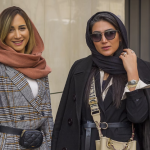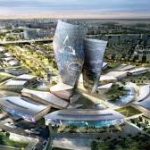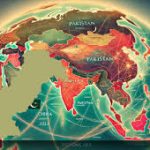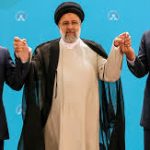Introduction
The year 2025 has emerged as a pivotal period for global affairs, with the Middle East playing a critical role in diplomacy, economic development, and technological advancement. From shifting alliances to groundbreaking innovations, the region is navigating complex global dynamics while seeking stability and growth. Kuwait, with its strategic location, neutral foreign policy, and economic diversification agenda, is uniquely positioned to influence both regional and global trends.
- Introduction
- Shifting Geopolitical Alliances
- Economic Developments and Diversification
- Technological Advancements Shaping Global Policies
- Climate Change and Environmental Diplomacy
- Regional Security and Conflict Management
- Cultural Exchange and Soft Power
- Emerging Trends in Global Media and Communication
- FAQs
- Conclusion
This article explores the major global events of 2025, analyzing their impact on the Middle East and highlighting Kuwait’s proactive role in shaping the region’s future.
Shifting Geopolitical Alliances
The global political landscape in 2025 is defined by changing alliances and strategic partnerships. The United States, China, and the European Union are all vying for influence in the Middle East. China’s Belt and Road Initiative has strengthened economic ties with Gulf nations, while the U.S. continues to focus on defense cooperation and technological partnerships.
Kuwait, known for its diplomatic neutrality, is leveraging these relationships to act as a bridge between competing global powers. By maintaining balanced foreign policies, Kuwait ensures its strategic relevance while fostering regional stability.
Economic Developments and Diversification
Global economic trends are influencing the Middle East’s strategic priorities. Oil demand is gradually shifting due to the worldwide energy transition, prompting Gulf nations to invest in renewable energy, smart infrastructure, and technology-driven industries.
Kuwait’s Vision 2035 emphasizes economic diversification, focusing on finance, healthcare, education, and technology. Partnerships with international firms and the establishment of innovation hubs are central to these efforts, positioning Kuwait as a forward-looking economic player in the global arena.
Technological Advancements Shaping Global Policies
Technology continues to play a transformative role in 2025. Artificial intelligence, quantum computing, blockchain, and advanced cybersecurity systems are influencing governance, business, and social development worldwide.
In the Middle East, governments are adopting these technologies to enhance public services, secure critical infrastructure, and drive innovation-led growth. Kuwait has invested heavily in smart city projects, digital governance, and AI research, aligning its policies with global trends while ensuring sustainable development.
Climate Change and Environmental Diplomacy
Climate change has emerged as a defining challenge for global diplomacy in 2025. Extreme weather events, water scarcity, and energy transitions are reshaping international priorities. The Middle East, particularly Gulf nations, is actively engaging in climate diplomacy, investing in renewable energy and carbon-neutral projects.
Kuwait has launched several initiatives to reduce emissions, promote sustainable urban planning, and develop renewable energy projects. These efforts not only contribute to global climate goals but also enhance the nation’s reputation as a responsible regional actor.
Regional Security and Conflict Management
The Middle East continues to face challenges related to security and regional conflicts. Rivalries among major powers, ongoing disputes in Palestine, and tensions between Iran and Saudi Arabia require careful diplomatic navigation.
Kuwait’s strategic neutrality allows it to mediate discussions, support humanitarian aid, and advocate for peaceful solutions. Its involvement in conflict resolution enhances regional stability while strengthening Kuwait’s position as a trusted partner in global diplomacy.
Cultural Exchange and Soft Power
Global events in 2025 highlight the importance of cultural diplomacy. Film festivals, international exhibitions, and digital platforms are enabling cross-cultural engagement, promoting understanding, and strengthening soft power.
Kuwaiti artists, filmmakers, and cultural initiatives are gaining international recognition, helping to showcase the country’s rich heritage and contemporary creativity. By investing in cultural exchanges, Kuwait strengthens global ties while promoting regional identity.
Emerging Trends in Global Media and Communication
The media landscape has evolved dramatically in 2025, with digital platforms, immersive content, and AI-driven news shaping public perception. Social media continues to be a powerful tool for global communication, influencing politics, business, and culture.
Kuwait has embraced modern media strategies, leveraging digital communication to enhance transparency, engage citizens, and project its voice internationally. This approach ensures that Kuwait remains relevant in global discussions and maintains influence across regional and international platforms.
FAQs
Q1: How is Kuwait leveraging global alliances in 2025?
Kuwait balances relations with the U.S., China, and the EU, acting as a neutral mediator while fostering economic and diplomatic ties.
Q2: What role does technology play in global policies?
AI, quantum computing, blockchain, and cybersecurity influence governance, business, and social development globally.
Q3: How is the Middle East addressing climate change?
Gulf nations, including Kuwait, invest in renewable energy, carbon-neutral projects, and sustainable urban development.
Q4: What are the key security challenges in 2025?
Regional rivalries, ongoing conflicts, and cybersecurity threats remain critical concerns.
Q5: How is Kuwait promoting its cultural influence globally?
Through cultural exchanges, international festivals, and digital media, Kuwait enhances soft power and showcases its heritage.
Conclusion
Global events in 2025 highlight a rapidly evolving landscape where diplomacy, technology, economy, and culture intersect. The Middle East, with its strategic importance and economic potential, is at the heart of these developments.
Kuwait’s proactive approach—balancing foreign alliances, investing in technology, promoting sustainability, and leveraging cultural influence—positions it as a key player in shaping both regional stability and global trends.
As 2025 unfolds, Kuwait’s strategic vision and active engagement in global affairs ensure that it remains a vital contributor to peace, innovation, and sustainable growth in the Middle East and beyond.









